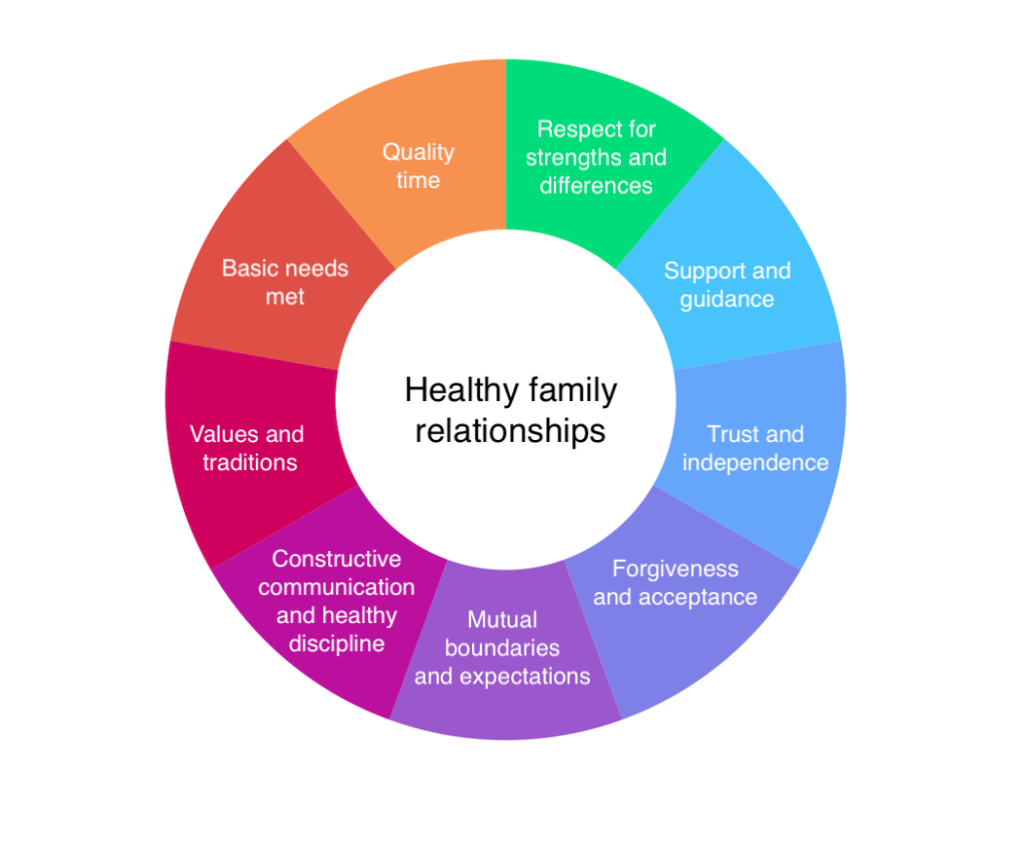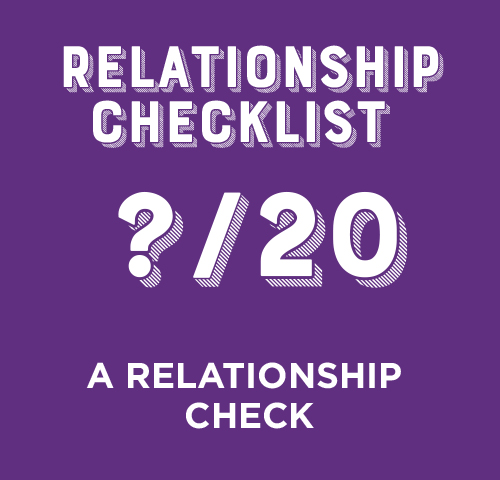Healthy family relationships include having open and honest conversations. However, it’s not always easy to have a difficult conversation with your parent or adult in your life.
Depending on your relationship and circumstance, learning how to talk to a parent/caregiver may take practise. And feeling comfortable/confident enough to get what you need out of the discussion may take time, too, especially if something is particularly hard for you to talk about or if it brings up a lot of emotions.
Kids Help Phone shares some tips and sample phrases you can use to help make talking to a parent/caregiver about what’s on your mind less nerve-racking and more effective.
Overview: what does a healthy relationship with family look like?

Looking for a starting point to build a healthier relationships with your parents?
Take the Relationship Checklist

- This checklist helps identify 5 key strategies and 20 actions for building strong relationships.
- This checklist focuses on family relationships to find strengths and areas to improve upon.
- Have your parent(s) do the relationship checklist on Parent Place and compare results!
What are some topics that youth often need to communicate with parents about?
The Centre for Parent and Teen Communication provides tips and guidelines for navigating conversations that may come up between teens and their parents. Some examples are:
- Getting parents to focus on more than grades or scores
- Rebuilding trust between you and your parent after making a mistake
- Teaching parents to understand your needs
Having a hard time understanding your parents’ perspective, or struggling to appreciate them even though you want to?
Sometimes it can be difficult to see where your parent is coming from, whether it has to do with rules they set, expectations they have of you, or how they communicate with you.
Empathy and understanding doesn’t always come naturally, especially in family relationships. You can work on this by:
- Recognize your parents’ strengths
- Let your parent know when they have done or said something that you appreciate
- Have a constructive conversation with your parent when you are not understanding a rule, expectation, etc.
Constructive Conversations with Family
Ways to turn conversations from conflictual to constructive:
- Have a ‘time and place’ strategy. Be thoughtful about when and where you choose to have the conversation. For example, maybe you can choose a time of day when your parent tends to be most talkative, or when you would already be spending time together.
- Come to the conversation with a clear point of view. It is easy to let your emotions overpower you and your ability to communicate your feelings clearly; prepare for the conversation by gathering your thoughts and what you would like to discuss. Not only does this help you get your point across and feel heard, but it also helps your family understand what you’re feeling.
- Come to the conversation with possible solutions. Know what you want to get out of the conversation.
- Be open to solutions brought by other family members.
- Use ‘I’ statements. Try to avoid placing blame or making accusations. Instead, focus on communicating how those things made you feel.
- Keep expectations realistic. The conversation will most likely not make a situation perfect, nor will it go completely your way. Be prepared to admit when you may be wrong or may have made a mistake.
- Spend as much time listening as talking. When the focus of the conversation is split evenly, both parties get their points across and feel heard.
- Stay focused on the present. Bringing up the past is most often not productive; you cannot change the past, but you can work on the current issue.
- Remember self-care. Constructive conversations can be emotional, frustrating, and tiring. Recognize that you have done a challenging thing, and take some time for yourself.

